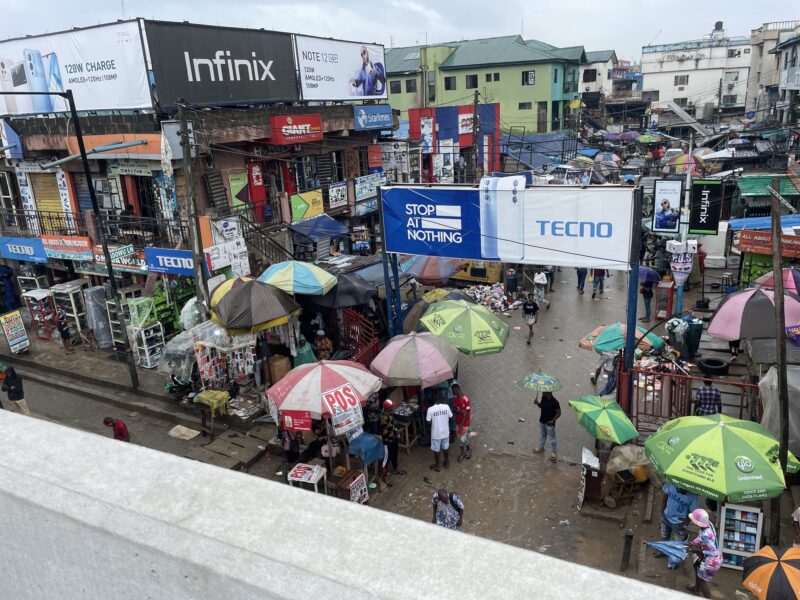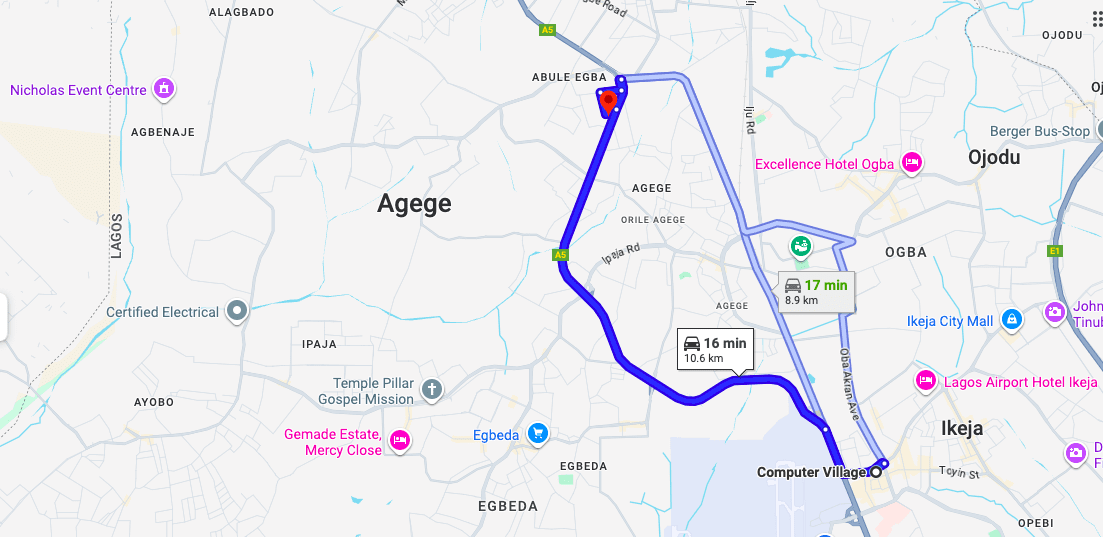On Monday, September 22, 2025, the Lagos State Government held its first-ever meeting, as part of a now 15-year plan, with stakeholders of Computer Village, Ikeja, regarding relocation plans to Katangowa, Agbado.
Gbolahan Oki, the permanent secretary of the Office of Urban Development, Lagos, said the new location will include lifestyle and entertainment centres, car parks, a fire station and a police post. He said Katangowa would provide a more organised and conducive business environment.
Oki went to argue that the current location of the Computer Village, one of Africa’s largest markets and possibly the biggest ICT market in West Africa, is an off-book plan, as Ikeja was originally a residential area, and the market has distorted the pages of that book.
Then, in an interview with Businessday, Olakunle Michael Oladipupo, the chairman of the Nigeria Computer Society (NCS), Lagos State Chapter, said, “We have been hearing about this relocation for like five to ten years now. Many people have actually become accustomed to Computer Village. But when such a market is moved to a new area, that place too will be developed. That is what government is looking at,” he said.

But some of the traders in the market do not quite agree with that arrangement.
In a survey shared by Technext and filled by 18 traders from the market, over 55% of them disagree with a relocation plan, while 22% support the idea. Over 27% argue that they will lose customers.
Computer Village traders are on edge
For many at Computer Village, the government’s relocation plan is not just a matter of moving shops; it’s a question of survival.
One trader who has sold phones and laptops for nearly a decade was unequivocal:
“Katangowa can’t carry the name of Computer Village. I will lose customers because my customers won’t come all the way there. They will rather buy somewhere closer. The government just wants to destroy our business.“
The survey backs this sentiment: 10 out of the 18 respondents, more than half, said they oppose the move outright. Only 4 expressed support, while another 4 were neutral or undecided.
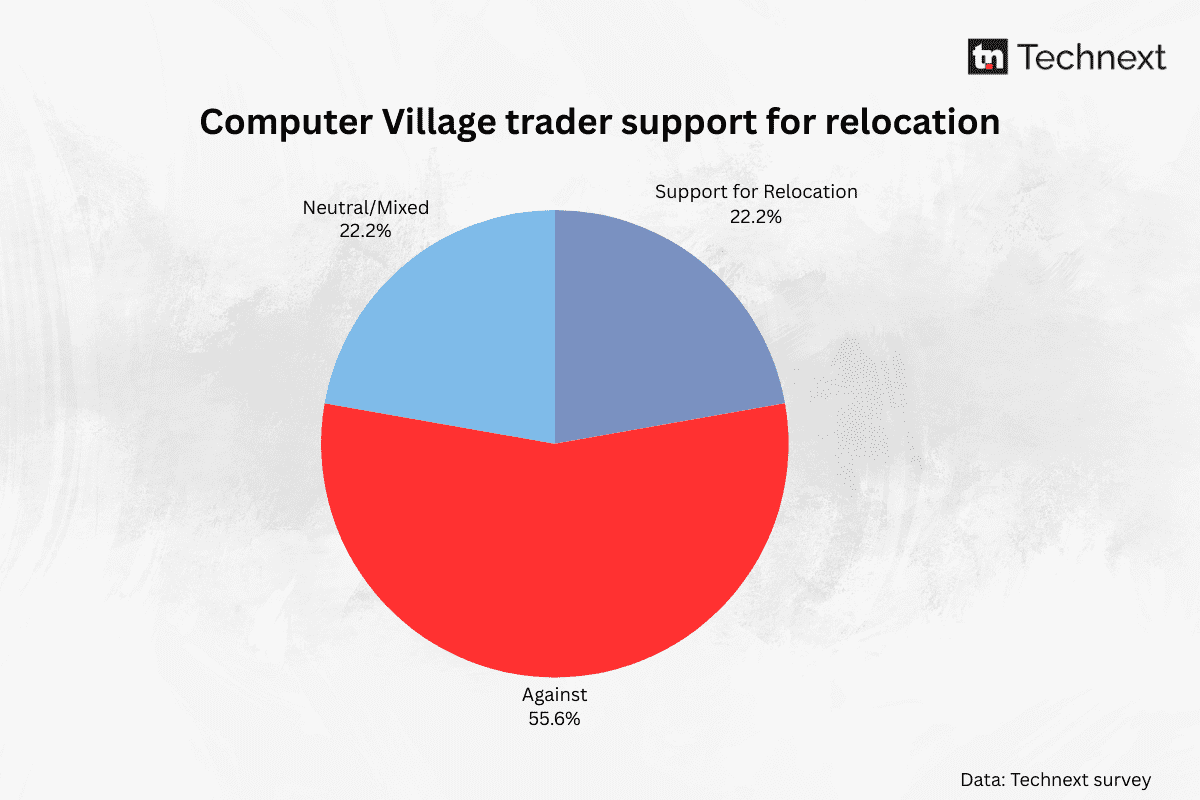

The biggest anxiety among traders is the risk of losing customers. Computer Village has grown over the decades into a hub recognised far beyond Lagos.
Buyers travel from Abuja, Port Harcourt, even neighbouring countries like Ghana and Benin Republic, knowing they will find everything from brand-new gadgets to the tiniest spare parts – and possibly the latest iPhone 17.
Relocating threatens to break this chain. One accessory seller said, “If I sell 10 phones a day at Computer Village, at Katangowa, I would probably sell only three. My family will be in trouble. So unless they are ready to embark on advert campaigns to convince customers, we are not moving anywhere.”
Another, a young trader still building clientele, added: “As a newcomer, I’m still trying to build customers. If we move now, it’s like starting all over. It will reduce my income and make it harder to support my family.”
Survey data shows five traders (27%) singled out customer loss as their main fear.
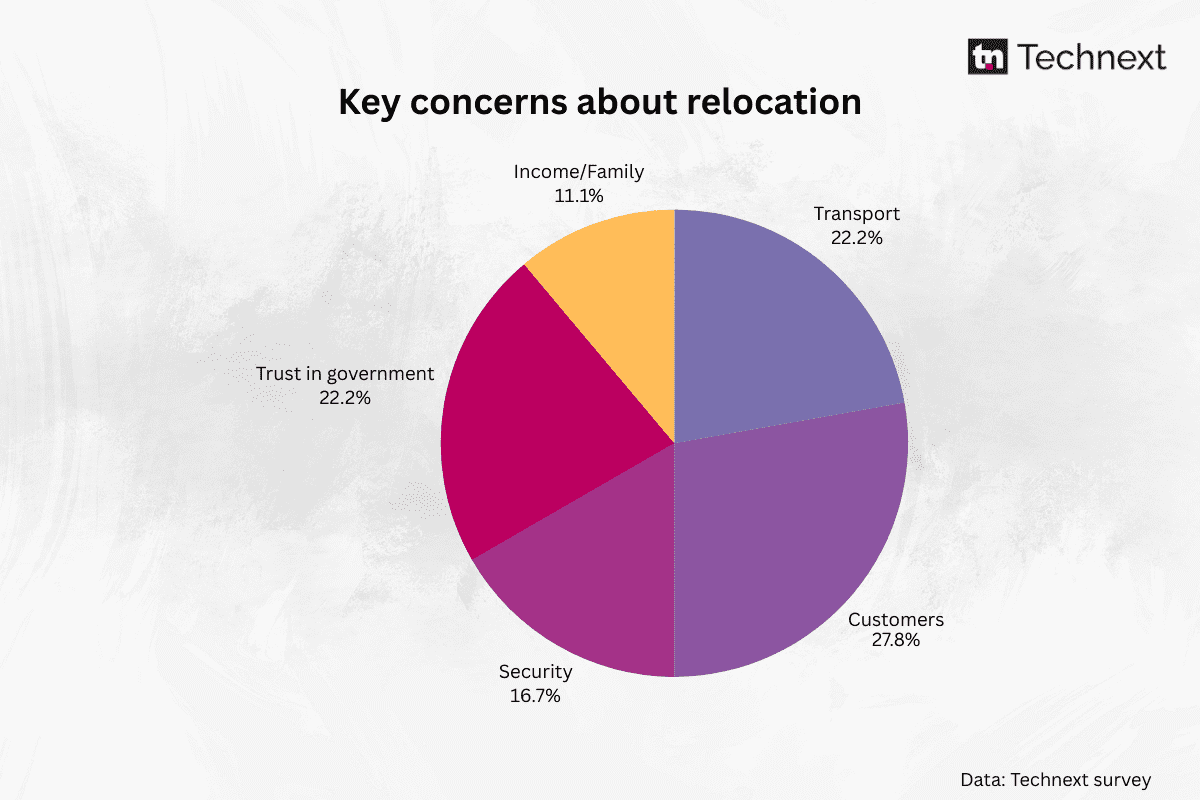

Transport is another recurring concern. Ikeja is central; Katangowa is not. Four respondents cited transport difficulty as the major challenge.
A laptop repairer explained: “This relocation is quite problematic. Even more so if you consider the transport from my house to Katangowa. If they provide shuttle buses, maybe we will move. Otherwise, there is no point. Customers are very impatient.“
Accessibility is key to Computer Village’s brand. It is not just about buying gadgets; it is about how quickly you can get them. Moving to Katangowa raises the question: will convenience still be part of the package?
Meanwhile, if there is one sentiment that runs through nearly every response, it is distrust. Four traders highlighted distrust in the government as their biggest obstacle.
Some traders accused the government of having ulterior motives: “This is all just a product of the government’s greed. They want to seize choice lands in Ikeja while moving us to the bush. How does that help our business?” a trader lamented.
The relocation, for these traders, is not about orderliness or structure, but about the government eyeing prime land in Ikeja.
One veteran software installer who has spent over 15 years in the market laughed off the announcement: “We have been hearing about the relocation for years now, as far back as the time Bola Tinubu was governor. But every time is the same story. I won’t believe anything they say until I see bulldozers on the roads.”
Another trader was even more direct: “The government is always assuring us of structures, but it never ends well. They won’t give notices or offer any kind of support. The whole relocation threat is just their way of controlling us,” the trader said.
Still, not everyone is against the plan. Some see relocation as an opportunity to start fresh.
A computer parts dealer with 12 years in the business said, “To be honest, Ikeja is already saturated. Because of that, it has a parking problem as well as street urchins invading everywhere. If the government really puts good structures in place at Katangowa, customers will follow. People may be complaining now, but once they see light and security, they will settle.”
Another trader drew comparisons with Alaba International Market, once considered too far but now a thriving hub: “I’m not very worried. Nigerians like to follow where the market is. If they move us and everything is as organised as they claim, customers will follow, after all, Alaba International Market is still very vibrant despite its distance.“
In total, four traders (22%) voiced support for the move, often hinging their hope on the government delivering on promises of infrastructure, security, and affordable rent.
What traders want
When asked what support they expect, responses varied. Some asked for loans and publicity to ease the transition, others insisted on better security and road access, and one insisted plainly: “We don’t want to go to Katangowa.”


One accessory seller tried to strike a middle ground: “Me, I support it small-small. Ikeja is choked. If they give us proper shops and organise the place, maybe it will be better. But the fear is government won’t deliver. They’ll collect money from us, then leave us stranded.”
Perhaps the deepest worry is not transport or income but identity. For two decades, Computer Village has become more than just a market; it is a brand. Relocation risks erasing that.
A long-time trader explained: “Look, Ikeja has brand name. People say ‘Computer Village’ and they know where to go. Katangowa can never replace it. Unless the government invests heavily in structure and security, this whole plan will just kill small businesses.”
This identity crisis was echoed in the survey: when asked whether Katangowa can replace Ikeja, the overwhelming answer was no.
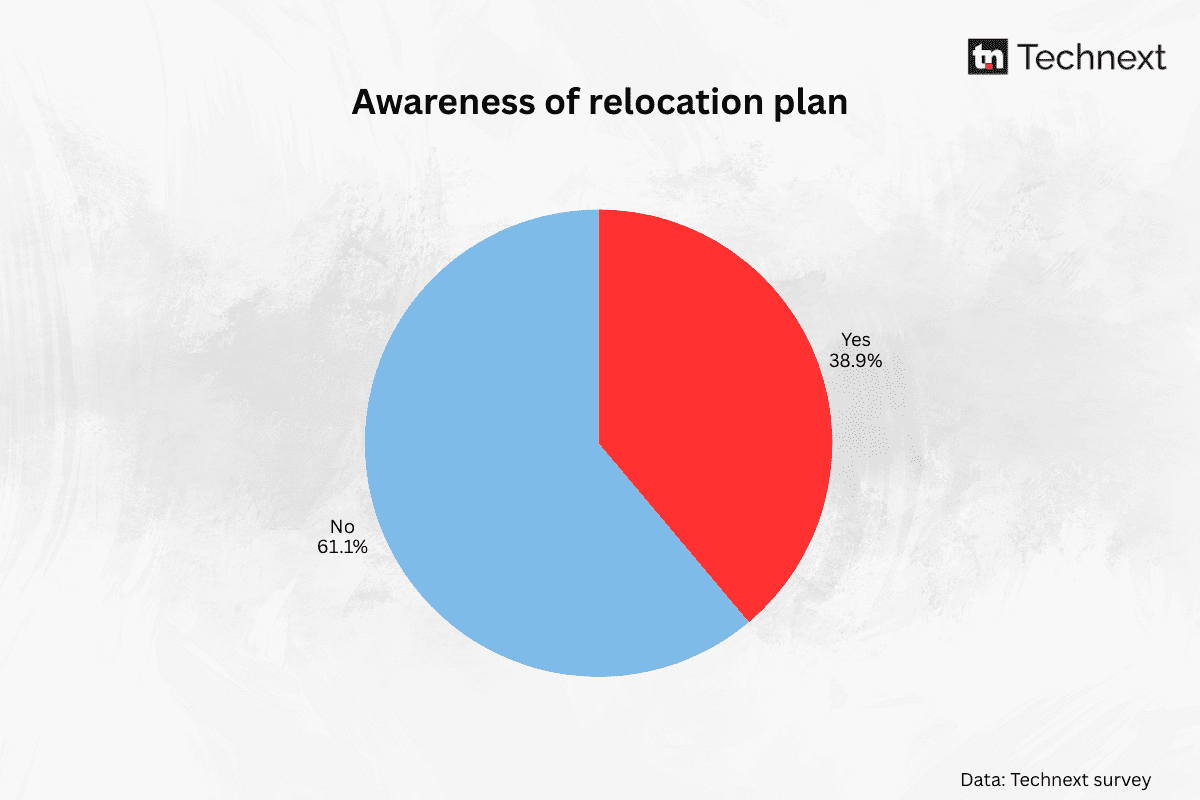

What emerges from both the data and the voices is a market at a crossroads. On one side, government officials envision an organised, modernised hub that can attract investment and ease urban congestion. On the other side, traders, the lifeblood of Computer Village, fear displacement, customer loss, and government betrayal.
18 voices may not represent every trader, but their responses highlight a deep mistrust between market stakeholders and government planners.
Relocation, if handled with genuine consultation and infrastructural backing, could indeed build a new hub in Katangowa. But without that trust, it risks not just moving businesses, but dismantling an ecosystem that took decades to build.
Meanwhile, the traders were given one year and six months from the Monday meeting to relocate. But one trader says the stakeholders may have another meeting where they’ll argue for a five-year relocation plan.

